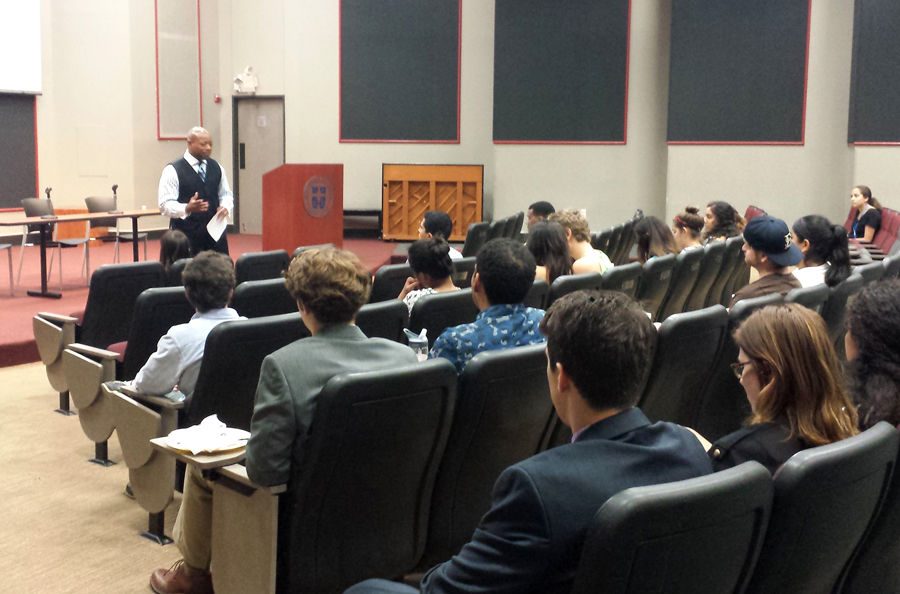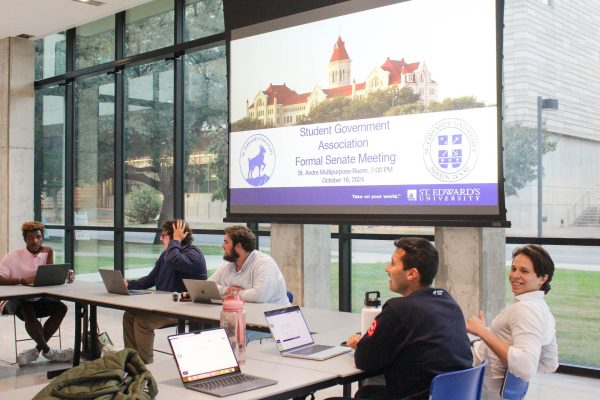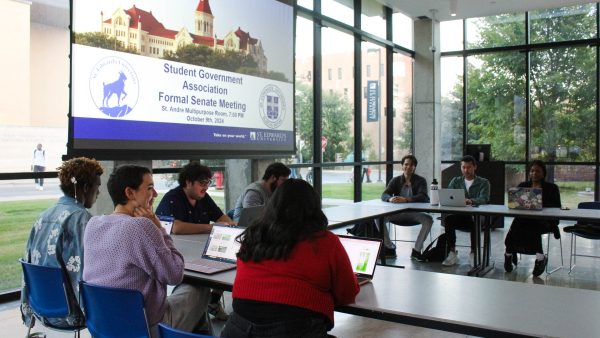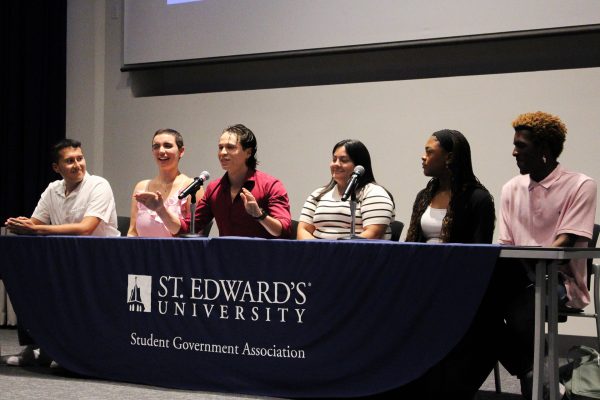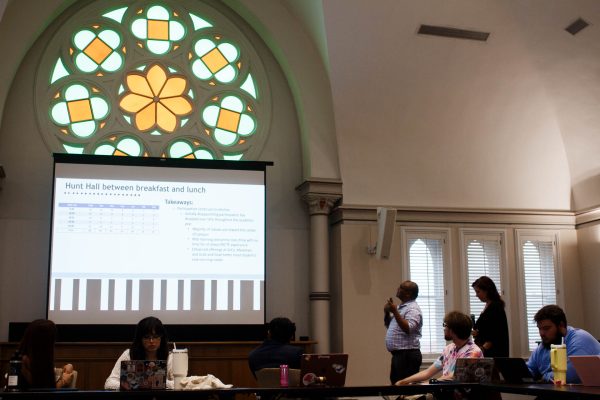SGA Public Forum tackles student resolutions, construction projects, late fees, insurance
The St. Edward’s University Student Government Association held their biannual public forum on Oct. 21 to inform students about important issues around campus.
SGA holds two public forums each year, one in the spring and one in the fall.
SGA President Jonathan Cruz began the event by introducing several projects that SGA has been working on. Their main project is called “I am SEU,” in which senators talk to other students they don’t know and come up with a resolution to present to the rest of student government.
The resolutions were presented Thursday during the formal SGA meeting. Some resolutions included making smoking areas on campus, religious exemption and creating more school spirit.
“I am really proud of what student government is doing to improve the community,” Cruz said.
The public forum also covered the new construction on campus, information on the new late fees and parking fees and information about the Health and Counseling center.
Associate Vice President of Facilities Michael Peterson said there will be four main construction projects that the university will focus on in the next 22 months.
The first main project will be replacing the air conditioner and heating system in the attic of Main Building.
“Probably by December 11, you’ll see cranes starting to arrive on the front lawn,” Peterson said.
The road in front of Main Building will be closed off except for one lane to allow for firetruck access. The construction will go through Christmas. They hope for it to be completed by the time school starts in January.
The next project will be building the Operations Facilities building along the practice soccer field. It will be a similar construction to the Woodward Office Building. The plan is to house UPD, Facilities, the copy center, the post office and purchasing in this new building.
The third construction project will be remodeling Holy Cross Hall. Design will take an estimated 12 months and another eight months for construction, Peterson said.
While the inside of the building is being remodeled, the windows and roof will be replaced and the brick repainted.
An auction of all excess furniture left in Holy Cross Hall will be held sometime in mid-November.
After Holy Cross Hall is open again, the goal is to have Andre Hall vacated next. Because the floor-to-ceiling ratios are too narrow for classrooms, Peterson said they might demolish Andre and start from scratch. However, they will find the most cost-effective way to remodel the building and Peterson says there have been no decisions yet.
The final construction project discussed was the new residence hall that will go up in the place of the Woodward Office Building. The hall will hold 450 beds with most units being four-bedroom, four-bathroom.
Offices and classrooms in the Woodward Office Building will be vacated by March 1, and then the building will be dismantled.
Other smaller construction projects include fixing the border on the Alumni Gym, RCC roof repairs, fixing 50-60 broken window seals in Rags and making repairs on 8-10 roofs around campus that were shown to have some damage according to an infrared flyover.
Bursar Peter Beilharz from the Student Financial Services Office discussed the new late fees and parking updates.
The new late fee charges students for overdue tuition. The fees are $75 or $25 if the student is on a payment plan.
The late fees are small and the dates are very generous, Beilharz said. The late fees will be charged to the student’s’ account more than a month after the due date of tuition. For the fall semester it is Aug. 1 and for the spring semester it is Dec. 1. Late fees are assessed on Sept. 15 in the fall and Feb. 1 in the spring.
Beilharz said that 12 percent of the student population were charged late fees with the new implementation. Beilharz’s data showed that 170 students were charged a late fee on the payment plan and 556 students were charged a regular late fee.
He said this fall was the first time that the university had actually seen a reduction on delinquent, or unpaid, balances. Beilharz said it will be interesting to see if this trend continues.
As for new parking regulations, faculty and staff are now required to pay parking citations, which was previously not enforced; bike and motorcycle registration is now required on campus; and cell phones are not allowed to be used while driving on campus.
Interim University Police Chief Dan Beck talked about parking updates and went over the crime log from the beginning of the semester. Beck said UPD gave 751 parking violation during the first two weeks of school. These were warnings rather than citations.
Beck also said UPD is still hosting one hour classes on active shooter response.
“As long as we have two or three students showing up, we will continue to teach the classes,” Beck said.
Director of the Health and Counseling Center Calvin Kelly spoke about the new Medical Director, Dr. Elizabeth Sanchez, and the new health insurance system.
Students are now required to submit their insurance information each semester or will be billed for university insurance. If students are having trouble with the insurance marketplace, the HCC has two staff members that are knowledgeable in the Affordable Care Act and are available to help students.


